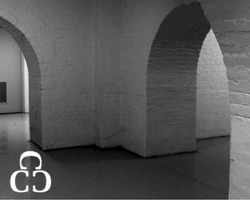
Hands down the the most important aspect of your home is the foundation. The foundation is essential because it is is literally what the house is built on and what keeps the building in place. Without it, your home would shift and slide about, so making sure your home has a solid foundation is critical - no pressure. When it comes to residential foundations though, one of the biggest issues is moisture surrounding it. If you have a basement, you’re often even more susceptible to moisture damage as it tries to pry its way in underneath and in the cracks. In an effort to save your foundation and thus your basement from utter doom, we’re going to further explain why it’s so important to keep a basement dry, clue you in on what can happen if you don’t, give you your options as to doing so, offer our recommendations for the best option, and how to execute whichever option you choose.
Why Should You Keep A Basement Dry?
As explained above, the foundation is the most essential aspect of the home; it is the glue that holds everything together. Basements and foundation are so closely linked that when moisture arises in a basement setting, it inevitably affects the foundation in some not so good ways. These ways include wet and damp crawl spaces that can breed mold and make below-ground interior spaces less than pleasant and wet soil underneath the foundation that can swell or lose strength. There are others, but these two are at the top of the list in terms of severity. Both are equally terrible when they occur, but to deal with the wet soil issue, it is a matter of draining water away from the structure. We won’t go into that too much, but if you’d like to learn more about this issue and how to solve it, you can click here.
We’d rather focus instead on the issue of damp and wet spaces as it pertains to basements as it’s an easier issue to approach and explain. When it comes to keeping basements dry, you have 2 main options: damp-proofing and water-proofing. Both are viable, but there are definite pros and cons to each. Below we’ll explain what each is and note their similarities and differences as well as lend our advice as to which you should choose.
Water-Proofing vs. Damp-Proofing
Choosing between waterproofing and dampproofing is a critical step in determining the health of your basement with regards to its moisture level. But first, what’s the difference between the two? With so much talk about keeping a dry basement, you’d think this aspect would be more thoroughly explained, but unfortunately it often times isn’t. We’re here to help explain this difference and offer some thoughts on which is the best option for your home.
What’s The Difference Between Water-Proofing And Damp-Proofing?
While dampproofing is only intended to keep out soil moisture, waterproofing keeps out both moisture and liquid water. The distinction is important because both a recommended to ensure no moisture accumulation occurs.
Which Is Recommended By The Professionals?
Because waterproofing does a more thorough job of ensuring moisture of no kind affects your foundation, we highly recommend it over dampproofing. By waterproofing your basement, you will ensure no moisture of any kind is able to penetrate the space.
How Does One Execute?
Although we do recommend going ahead and waterproofing as opposed to dampproofing, we’ll explain the general idea behind how to do both, so you can make that decision yourself! Power to the people. Am I right?
Damp Proofing involves applying a coating, usually asphalt-based, to the exterior wall either by spraying or applying it by hand. As mentioned before, it isn’t as thorough as waterproofing, but dampproofing is still a viable option for keeping moisture out of residential basements and thus ensuring a safe foundation.
Waterproofing follows generally the same formula, but it is more thorough in ensuring water stays out. Because of this thoroughness, we recommend waterproofing over dampproofing.
This was only a brief introduction to how both dampproofing and waterproofing are executed, to learn more about each process, click here.
There are so many creative and custom options for finishing concrete, but first and foremost important is the concrete itself. At Custom Concrete Creations we have state of the art equipment and a properly trained team with years of experience. Custom Concrete Creations is a premier contractor serving the Omaha area as well at the Midwest. Give us a call or send us an email for your custom concrete finishing needs today!
